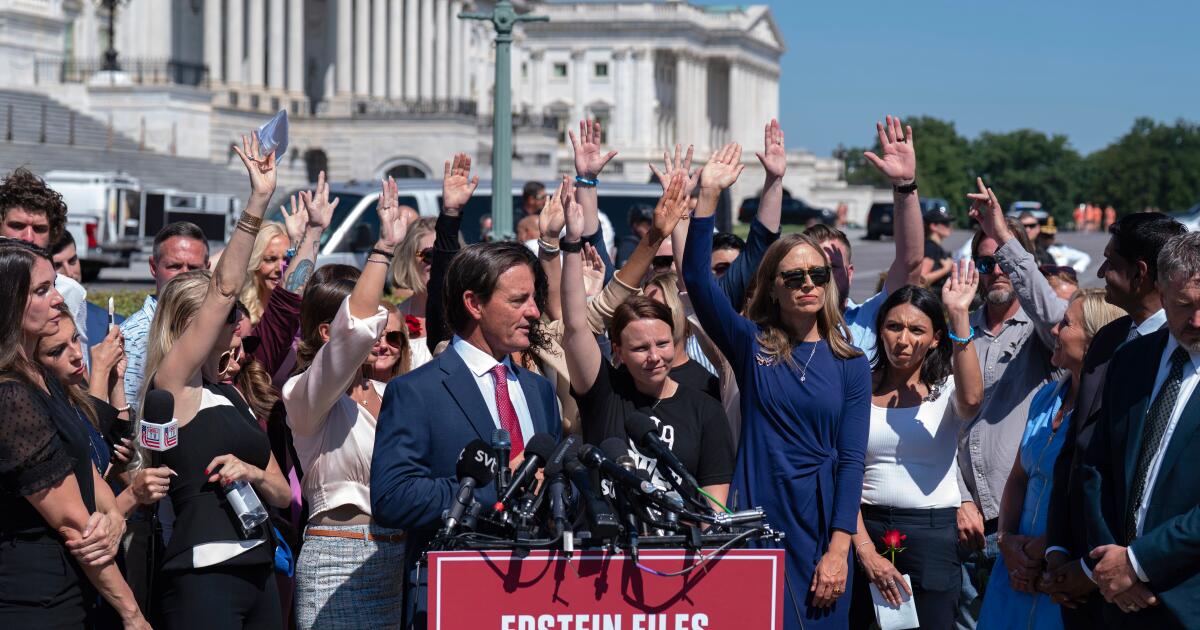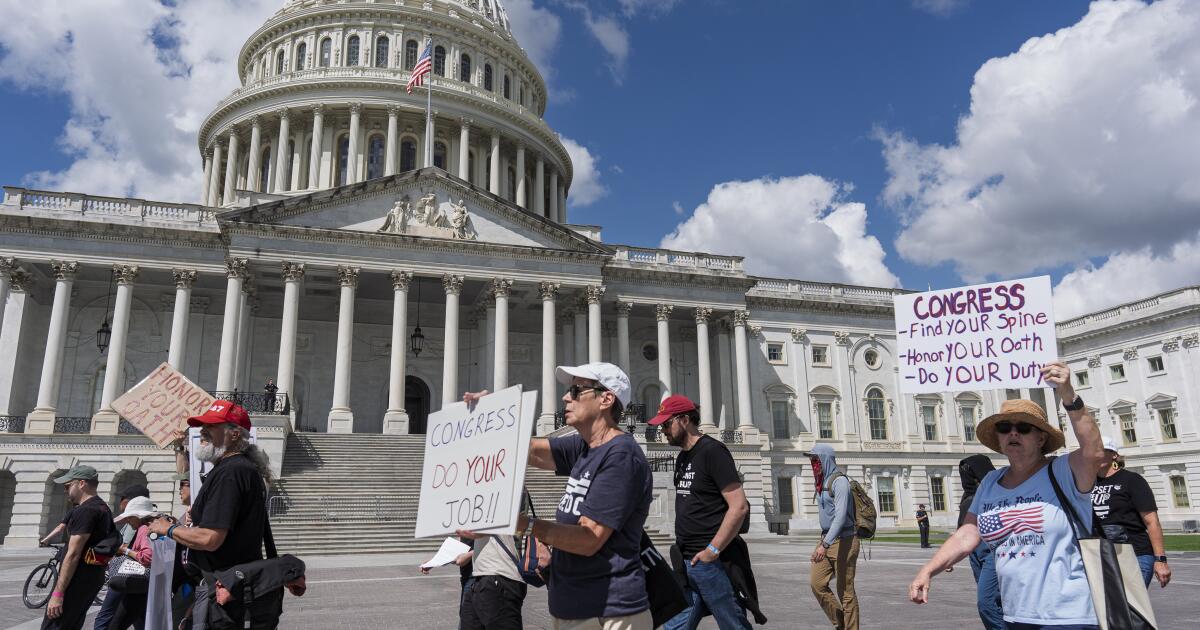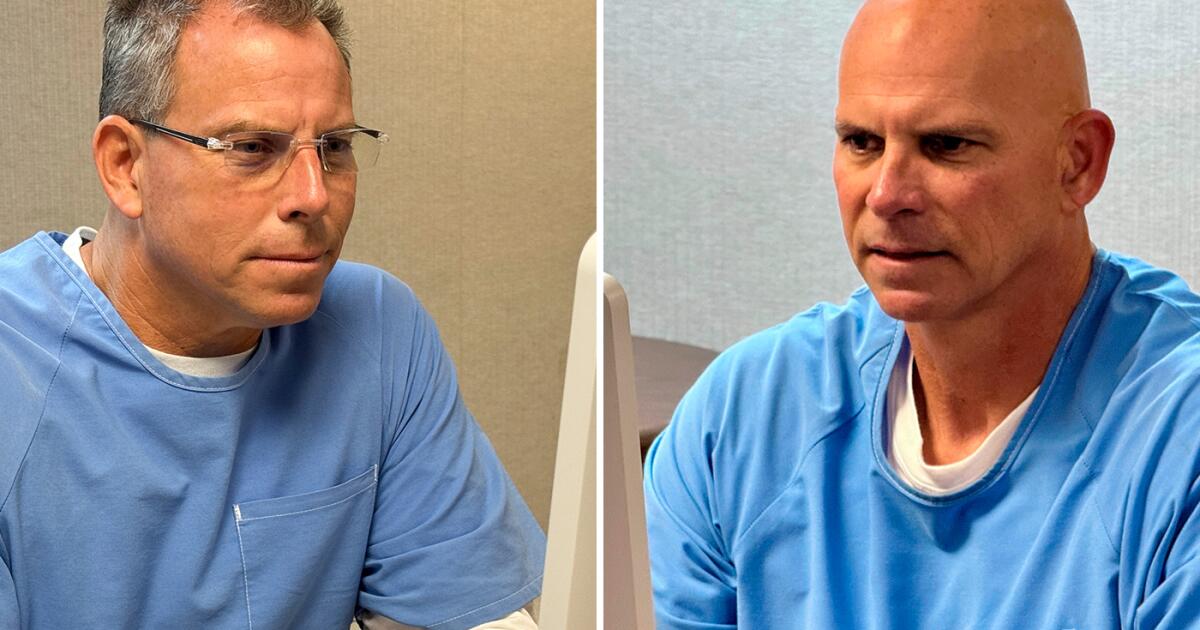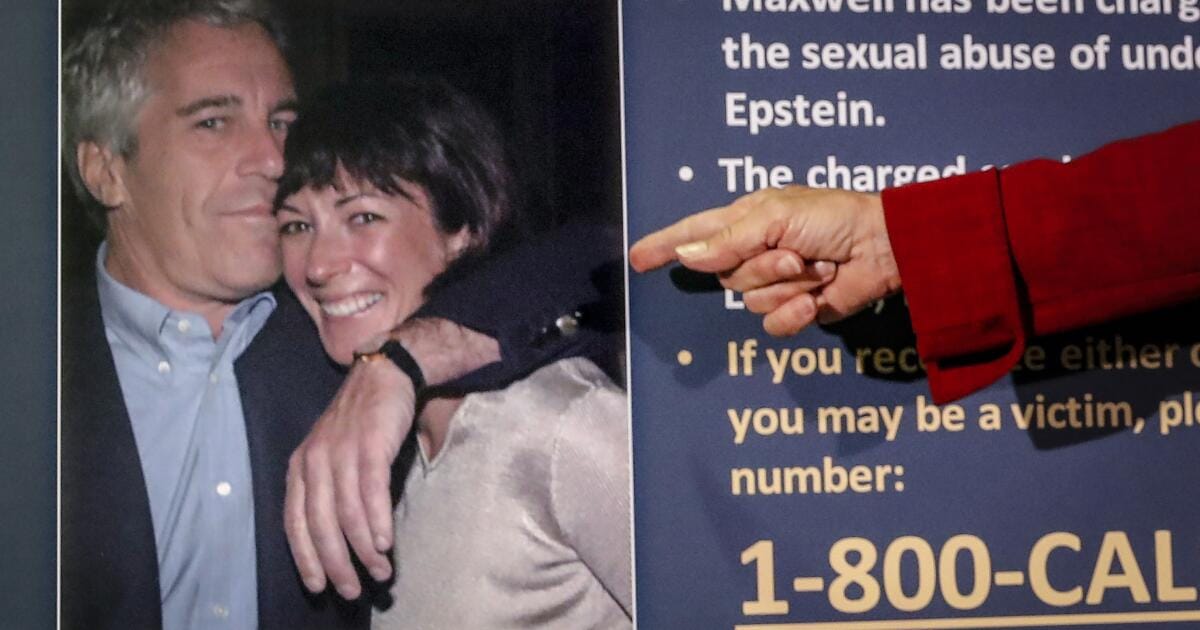WASHINGTON — The Trump administration on Monday released records of the FBI’s surveillance of Martin Luther King Jr. despite opposition from the slain Nobel laureate’s family and the civil rights group that he led until his 1968 assassination.
The digital document dump includes more than 240,000 pages of records that had been under a court-imposed seal since 1977, when the FBI first gathered the records and turned them over to the National Archives and Records Administration.
In a lengthy statement released Monday, King’s two living children, Martin III, 67, and Bernice, 62, said their father’s killing has been a “captivating public curiosity for decades.” But the pair emphasized the personal nature of the matter and urged that the files “be viewed within their full historical context.”
The Kings got advance access to the records and had their own teams reviewing them. Those efforts continued even as the government granted public access. Among the documents are leads the FBI received after King’s assassination and details of the CIA’s fixation on King’s pivot to international anti-war and anti-poverty movements in the years before he was killed. It was not immediately clear whether the documents shed new light on King’s life, the civil rights movement or his murder.
“As the children of Dr. King and Mrs. Coretta Scott King, his tragic death has been an intensely personal grief — a devastating loss for his wife, children, and the granddaughter he never met — an absence our family has endured for over 57 years,” they wrote. “We ask those who engage with the release of these files to do so with empathy, restraint, and respect for our family’s continuing grief.”
They also repeated the family’s long-held contention that James Earl Ray, the man convicted of assassinating King, was not solely responsible, if at all.
Bernice King was 5 years old when her father was killed at the age of 39. Martin III was 10.
A statement from the office of Director of National Intelligence Tulsi Gabbard called the disclosure “unprecedented” and said many of the records had been digitized for the first time. She praised President Trump for pushing the issue.
Release is ‘transparency’ to some, a ‘distraction’ for others
Trump promised as a candidate to release files related to President John F. Kennedy’s 1963 assassination. When Trump took office in January, he signed an executive order to declassify the JFK records, along with those associated with Robert F. Kennedy’s and MLK’s 1968 assassinations.
The government unsealed the JFK records in March and disclosed some RFK files in April.
The announcement from Gabbard’s office included a statement from Alveda King, Martin Luther King Jr.’s niece, who is an outspoken conservative and has broken from King’s children on various topics — including the FBI files. Alveda King said she was “grateful to President Trump” for his “transparency.”
Separately, Atty. Gen. Pam Bondi’s social media account featured a picture of the attorney general with Alveda King.
Besides fulfilling Trump’s order, the latest release means another alternative headline for the president as he tries to mollify supporters angry over his administration’s handling of records concerning the sex trafficking investigation of Jeffrey Epstein, who killed himself behind bars while awaiting trial in 2019, during Trump’s first presidency. Trump on Friday ordered the Justice Department to release grand jury testimony but stopped short of unsealing the entire case file.
Bernice King and Martin Luther King III did not mention Trump in their statement Monday. But Bernice King later posted on her personal Instagram account a black-and-white photo of her father, looking annoyed, with the caption “Now, do the Epstein files.”
And some civil rights activists did not spare the president.
“Trump releasing the MLK assassination files is not about transparency or justice,” said the Rev. Al Sharpton. “It’s a desperate attempt to distract people from the firestorm engulfing Trump over the Epstein files and the public unraveling of his credibility among the MAGA base.”
The King Center, founded by King’s widow and now led by Bernice King, reacted separately from what Bernice said jointly with her brother. The King Center statement framed the release as a distraction — but from more than short-term political controversy.
“It is unfortunate and ill-timed, given the myriad of pressing issues and injustices affecting the United States and the global society,” the King Center, linking those challenges to MLK’s efforts. “This righteous work should be our collective response to renewed attention on the assassination of a great purveyor of true peace.”
Records mean a new trove of research material
The King records were initially intended to be sealed until 2027, until Justice Department attorneys asked a federal judge to lift the sealing order early. Scholars, history buffs and journalists have been preparing to study the documents for new information about his assassination on April 4, 1968, in Memphis, Tenn.
The Southern Christian Leadership Conference, which King co-founded in 1957 as the civil rights movement blossomed, opposed the release. The group, along with King’s family, argued that the FBI illegally surveilled King and other civil rights figures, hoping to discredit them and their movement.
It has long been established that then-FBI Director J. Edgar Hoover was intensely interested if not obsessed with King and others he considered radicals. FBI records released previously show how Hoover’s bureau wiretapped King’s telephone lines, bugged his hotel rooms and used informants to gather information, including evidence of King’s extramarital affairs.
“He was relentlessly targeted by an invasive, predatory, and deeply disturbing disinformation and surveillance campaign orchestrated by J. Edgar Hoover through the Federal Bureau of Investigation,” the King children said in their statement.
“The intent … was not only to monitor, but to discredit, dismantle and destroy Dr. King’s reputation and the broader American Civil Rights Movement,” they continued. “These actions were not only invasions of privacy, but intentional assaults on the truth — undermining the dignity and freedoms of private citizens who fought for justice, designed to neutralize those who dared to challenge the status quo.”
The Kings said they “support transparency and historical accountability” but “object to any attacks on our father’s legacy or attempts to weaponize it to spread falsehoods.”
Opposition to King intensified even after the Civil Rights Movement compelled Congress and President Lyndon B. Johnson to enact the Civil Rights Act of 1964 and the Voting Rights Act of 1965. After those victories, King turned his attention to economic justice and international peace. He criticized rapacious capitalism and the Vietnam War. King asserted that political rights alone were not enough to ensure a just society. Many establishment figures like Hoover viewed King as a communist threat.
King’s children still don’t accept the original explanation of assassination
King was assassinated as he was aiding striking sanitation workers in Memphis, part of his explicit turn toward economic justice.
Ray pleaded guilty to King’s murder. Ray later renounced that plea and maintained his innocence until his death in 1998.
King family members and others have long questioned whether Ray acted alone or if he was even involved. Coretta Scott King asked for the probe to be reopened, and in 1998, then-Atty. Gen. Janet Reno ordered a new look. Reno’s Justice Department said it “found nothing to disturb the 1969 judicial determination that James Earl Ray murdered Dr. King.”
In their latest statement, Bernice King and Martin Luther King III repeated their assertions that Ray was set up. They pointed to a 1999 civil case, brought by the King family, in which a Memphis jury concluded that Martin Luther King Jr. had been the target of a conspiracy.
“As we review these newly released files,” the Kings said, “we will assess whether they offer additional insights beyond the findings our family has already accepted.”
Barrow writes for the Associated Press. AP journalist Safiyah Riddle contributed to this report from Montgomery, Ala.








